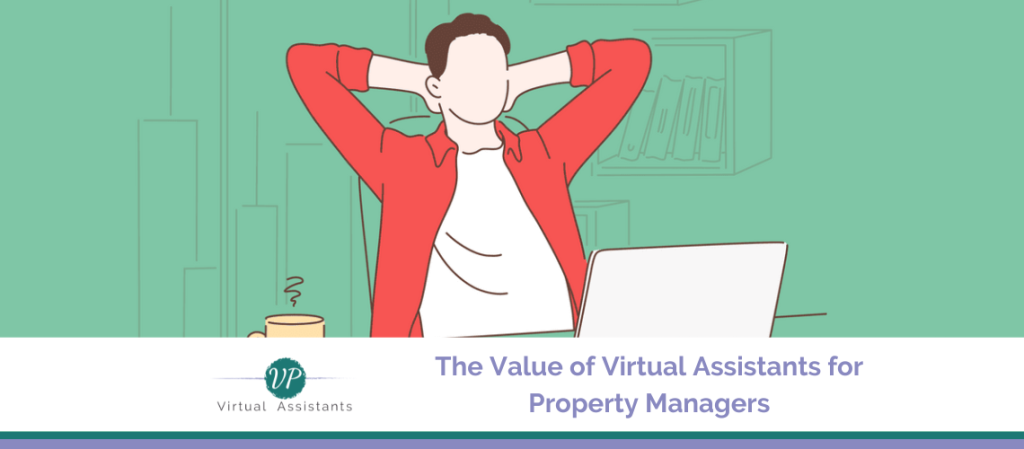Some of the links in this post are affiliate links. This means if you click on the link and purchase the item, we will receive an affiliate commission at no extra cost to you. All opinions remain our own.

Virtual Assistants (VAs) are increasingly becoming indispensable across industries, offering a variety of services that boost efficiency, reduce costs, and enhance customer satisfaction. One sector that can significantly benefit from virtual assistants is property management.
As a property manager, overseeing the smooth operation of rental properties and ensuring tenant satisfaction are key responsibilities. Managing multiple properties, responding to maintenance requests, collecting rent, and handling administrative duties can be overwhelming and time-consuming. Balancing all these tasks while maintaining efficiency often proves challenging, but this is where virtual assistants can make a substantial impact.
Why Property Managers Should Consider Virtual Assistants
Virtual assistants, commonly referred to as VAs, are remote professionals who provide administrative, technical, or creative support. They can perform tasks such as scheduling, email management, phone calls, data entry, bookkeeping, and more. Some VAs specialize in specific areas like customer service, social media management, or content creation. Their versatility and expertise make them a valuable resource for property managers in a number of ways.
Benefits of Virtual Assistants for Property Managers
1. Enhanced Tenant Communication
Virtual assistants can manage tenant communication through email, phone calls, and live chat. They can provide prompt responses to inquiries and handle scheduling for inspections or repairs, improving the tenant experience. By addressing issues quickly, VAs help boost tenant satisfaction, retention rates, and even garner positive word-of-mouth referrals.
Additionally, VAs can manage sensitive or challenging conversations with professionalism, acting as a buffer between tenants and property managers. This helps maintain positive relationships and prevent potential conflicts.
2. Increased Productivity and Time Management
Delegating routine tasks to virtual assistants allows property managers to focus on more strategic elements, such as tenant relations, property marketing, and business growth. This distribution of responsibilities leads to improved time management and a more streamlined workflow, ensuring important tasks receive the attention they deserve.
3. Cost Efficiency
One of the key advantages of hiring a virtual assistant is cost-effectiveness. Unlike in-house staff, VAs work remotely and are typically employed on a contractual basis. This means property managers save on overhead expenses, such as office space, equipment, and employee benefits, making it an attractive option for smaller property management companies looking to optimize their operations without large expenditures.
4. Flexibility and Scalability
Virtual assistants offer property managers the flexibility to scale operations up or down depending on demand. During peak periods, such as leasing season, VAs can take on extra work, and during slower times, their hours can be reduced. This adaptability is essential for managing workload fluctuations without being over or understaffed.
5. Access to Specialized Skills
Virtual assistants often bring specialized skills that can benefit property managers. Whether it’s social media marketing to promote properties, financial management, or administrative support, VAs provide expertise that enhances the property management business. Access to these skills allows property managers to focus on growth while having the right resources to handle various aspects of their operations.
Future Trends in Virtual Assistants for Property Management
The shift to remote work, accelerated by the COVID-19 pandemic, has led to a growing reliance on virtual assistants in property management. As technology advances, the integration of VAs into daily operations is becoming seamless. Property management software, online rental platforms, and communication tools now allow VAs to handle tasks like lease processing, payment tracking, and maintenance coordination in real-time.
Moreover, as tenants increasingly prefer digital solutions, virtual assistants can help property managers meet these demands by providing modern, tech-driven services. This trend is expected to continue as the gig economy grows, providing property managers with a pool of skilled VAs to choose from.
Conclusion
The benefits of virtual assistants for property managers are undeniable. From enhanced communication and improved productivity to cost savings and access to specialized skills, VAs play a pivotal role in streamlining operations and driving business growth.
As virtual assistants become more integrated into property management through evolving technologies, embracing this trend will give property managers a competitive edge in the market. If you’re ready to leverage virtual assistance to take your property management business to the next level, we’re here to help you find the perfect VA to meet your needs.
